
Allied Health courses in Geelong
Course providers in Geelong
The following providers offer Allied Health courses in Geelong.


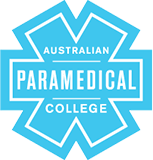














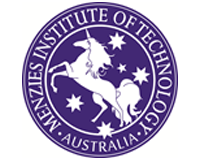






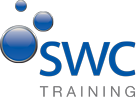

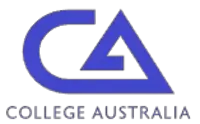




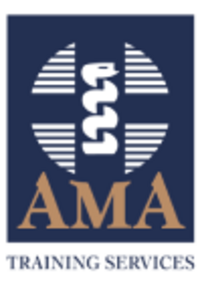



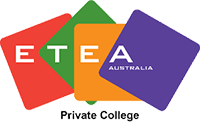





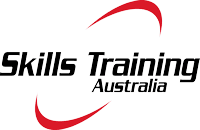






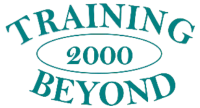
















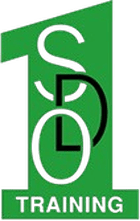





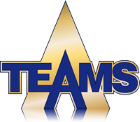




Career Pathfinder
Skills shortages + AI Exposure
Discover in-demand careers and understand how each role may be impacted by AI and automation.
- See in-demand occupations across Australia
- Check AI Exposure ratings
- Compare training duration and average income
Common questions
Occupational therapists help patients perform tasks in daily life, while physiotherapists help patients improve their movement, strength and function. The term occupation refers to everyday life tasks, while physiotherapy refers to physical therapy. Both are science-based allied health roles that aim to improve quality of life through prevention, maintenance and treatment.
 Stephen Charlton
Stephen Charlton
You can become qualified to work as an occupational therapist by completing one of the following degrees, depending on your educational pathway:
- Master of Occupational Therapy (postgraduate degree)
Average duration: 24 months - Bachelor of Occupational Therapy (Honours)
Average duration: 4 years - Bachelor of Occupational Therapy
Average duration: 4 years
 Stephen Charlton
Stephen Charlton
You can become qualified to work as a physiotherapist by completing one of the following degrees, depending on your educational pathway:
- Doctor of Physiotherapy (postgraduate degree)
Average duration: 3 years - Master of Physiotherapy (postgraduate degree)
Average duration: 24 months - Bachelor of Physiotherapy (Honours)
Average duration: 4 years - Bachelor of Physiotherapy
Average duration: 4 years
 Stephen Charlton
Stephen Charlton
Yes, you need to complete an accredited degree to work legally as an occupational therapist or physiotherapist in Australia. The two core pathways are completing a bachelor’s degree or a postgraduate degree. The Occupational Therapy Council of Australia and Australian Physiotherapy Council are responsible for accrediting such courses.
 Stephen Charlton
Stephen Charlton
Yes, overseas-qualified practitioners can work in Australia by registering with the Occupational Therapy Board of Australia or Physiotherapy Board of Australia. Practitioners who are currently registered with the Occupational Therapy Board of New Zealand or Physiotherapy Board of New Zealand can apply directly for Australian registration. Other overseas-qualified practitioners have to fulfil the requirements listed on the relevant webpages of the Occupational Therapy Board of Australia and Physiotherapy Board of Australia.
 Stephen Charlton
Stephen Charlton
If you have already completed an approved degree in a different discipline, you can gain an accredited postgraduate degree to become qualified to work as an occupational therapist or physiotherapist. Examples of such degrees are a Master of Occupational Therapy, Master of Physiotherapy and Doctor of Physiotherapy. Postgraduate degrees in these fields may have additional entry requirements, including but not limited to health-related prerequisite subjects.
 Stephen Charlton
Stephen Charlton
In some cases, completing vocational education and training (VET) in a related discipline can allow you to meet the entry requirements for a bachelor’s degree in these fields. Entry requirements vary between educational providers. Some providers offer a VET entry pathway with a minimum of a Certificate IV, but others require a minimum of a diploma or advanced diploma. Some providers do not offer a VET pathway for these courses at all. Therefore, it’s wise to confirm the entry requirements for your desired bachelor’s degree before starting a VET course.
 Stephen Charlton
Stephen Charlton
In addition to completing an accredited degree, occupational therapists and physiotherapists will need to register with the Occupational Therapy Board of Australia or Physiotherapy Board of Australia to work in Australia. The Australian Health Practitioner Regulation Agency (AHPRA) administers practitioner registration on behalf of these boards. There are different requirements to gain registration for Australian-qualified practitioners, New Zealand-registered practitioners, and other overseas-qualified practitioners.
 Stephen Charlton
Stephen Charlton
Career paths for these professions include independent contracting, starting a practice, working in community care, paediatrics, mental health, rehabilitation, disability, medical or aged care sectors).
 Stephen Charlton
Stephen Charlton
Jobs and Skills Australia reports that the median full-time weekly earnings for occupational therapists and physiotherapists in 2024 are $1,526 and $1,710, respectively. These figures can be contrasted with Australian workers of all occupations, who earn a median full-time weekly income of $1,697.
 Stephen Charlton
Stephen Charlton
There is a significant demand for occupational therapists across Australia. Jobs and Skills Australia’s Occupation Shortage List indicates that the labour market had a shortage of occupational therapists across all states and territories from 2022 to 2024.
 Stephen Charlton
Stephen Charlton
There is substantial demand for physiotherapists in Australia. Jobs and Skills Australia’s Occupation Shortage List indicates that the labour market experienced a shortage of occupational therapists and physiotherapists in most states and territories from 2022 to 2024.
 Stephen Charlton
Stephen Charlton
Working as an occupational therapist or physiotherapist comes with the satisfaction of directly helping to improve patients’ quality of life. Furthermore, the job market is promising, as Jobs and Skills Australia reports there is significant labour market demand for both professions. The future outlook is also positive, as Jobs and Skills Australia reports that the annual employment growth in 2024 for occupational therapists and physiotherapists is 2,200 and 4,100, respectively.
 Stephen Charlton
Stephen Charlton
Further reading


What can you do with a Certificate IV in Allied Health Assistance (Physiotherapy)?
3rd March 2022
What can you do with a Certificate III in Allied Health Assistance?
8th January 2020All courses
- HLT33021 Certificate III in Allied Health Assistance
- HLT47321 Certificate IV in Health Administration
- CHC43315 Certificate IV in Mental Health
- CHC53315 Diploma of Mental Health
- HLT52021 Diploma of Remedial Massage
- HLT41120 Certificate IV in Health Care
- HLT54121 Diploma of Nursing
- HLT43015 Certificate IV in Allied Health Assistance (Physiotherapy)
- BSB40215 Certificate IV in Business (Dental Practice Managers)
- Bachelor of Science (Physiology)
- HLTINFCOV001 Comply with infection prevention and control policies and procedures
- HLT42512 Certificate IV in Allied Health Assistance
- Bachelor of Physiotherapy
- CHCCCS019 Recognise and respond to crisis situations
- Doctor of Medicine
- Bachelor of Occupational Therapy
- Bachelor of Occupational Therapy (Honours)
- HLT43015 Certificate IV in Allied Health Assistance (Nutrition and Dietetics)
- Master of Sports and Exercise Physiotherapy
- Bachelor of Social Work
- Graduate Diploma in Digital Health
- BSB42015 Certificate IV in Leadership and Management (Dental Practice Managers)
- HLT37315 Certificate III in Health Administration
- HLTCAR001 Perform Electrocardiography (ECG)
- Bachelor of Public Health
- CHCSS00103 Mental Health Peer Work Skill Set
- HLT43015 Certificate IV in Allied Health Assistance (Occupational Therapy)
- Bachelor of Speech Pathology (Honours)
More about Allied Health courses
Geelong, renowned for its vibrant community and scenic coastline, is home to a diverse range of Allied Health courses designed to cater to both beginners and experienced learners. For those new to the sector, options such as the Certificate III in Allied Health Assistance provide the perfect foundation, while more advanced courses like the Certificate IV in Mental Health and the Diploma of Mental Health enable seasoned professionals to enhance their qualifications. With a total of 65 Allied Health courses available in Geelong, learners are sure to find the right fit for their educational journey.
Whether you are interested in pursuing a career in physiotherapy, psychology, or occupational therapy, Geelong offers a variety of courses to support your career aspirations. From the Certificate III in Individual Support (Disability) aimed at beginners, to advanced options such as the Bachelor of Occupational Therapy, each course is delivered by reputable training providers ensuring high-quality education.
Students looking to broaden their skills can explore short courses like Assist Clients with Medication Skill Set or Comply with Infection Prevention and Control Policies and Procedures. These courses not only enhance current qualifications but also keep practitioners up to date with industry standards, which is vital in the ever-evolving healthcare landscape in Geelong.
Moreover, higher education options are extensive, with courses such as the Master of Speech Pathology and the Bachelor of Nursing. These programs are designed to equip graduates with the knowledge and skills required in their respective fields, making them well-positioned to contribute effectively to community health services in Geelong and beyond. Each program helps students not only gain theoretical knowledge but also practical experience, preparing them for real-world challenges.
In summary, Geelong stands out as a hub for Allied Health education, with a plethora of courses to suit various interests and career objectives. Prospective students can explore a broad range of study areas from Nutrition and Dietetics to Ambulance and Paramedic. To find out more about the exciting opportunities available, visit the Allied Health Courses in Geelong page today.
